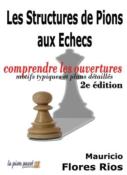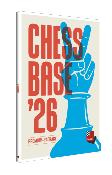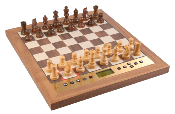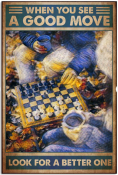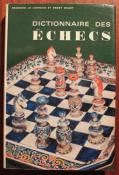Preparation for the Game
I start preparation by viewing my opponent’s games over the last 2-3 years. Sometimes the last year is enough – if the opponent plays actively. Sometimes, if they are young and only have 30-40 games in the database, you can look at all the games (by the way, if you have only a few games in the database, this is not very pleasant for the opponent). I do it quickly, looking at about 20 moves, mainly focusing on the opening stage.
It is also worth looking at their games for the opposite color in order to understand whether they play the same thing that you want to play. This is especially important if you use several opening options; there is the opportunity to lead the opponent into a position less familiar to him.
An important point if you use the "Chessbase” program. You can use the "select to book” function, but I think it’s better to go through each game to understand which of the openings have been played recently.
My Openings with White
I use three starting moves: 1.d4, 1.c4 and 1.Nf3. It is a good thing that they have a similar character and can transpose to each other. It’s not like playing both 1.e4 and 1.d4 – different things.
Generally, Black has two options of play in closed openings:
1. Solid openings, based on the …d5-move.
a. The Slav Defense: 1.d4 d5 2.c4 c6
b. The Queen’s Gambit: 1.d4 d5 2.c4 e6
c. The Nimzo-Indian: 1.d4 Nf6 2.c4 e6
I like to play against those openings. So, I usually use 1.d4. But depending on the situation, I can also play 1.с4/1.Nf3.
2. Dynamic openings, based on the …g6-move:
a. The Grünfeld Defense: 1.d4 Nf6 2.c4 g6 3.Nc3 d5
b. The King’s Indian Defense: 1.d4 Nf6 2.c4 g6 3.Nc3 Bg7
c. The Volga Gambit: 1.d4 Nf6 2.c4 c5 3.d5 b5
d. The Benoni: 1.d4 Nf6 2.c4 c5 3.d5 e6
I don’t like to give the initiative to the opponent even if the engine shows a good evaluation. So, in most cases I use 1.с4 or 1.Nf3. I play 1.d4 followed by 2.с4 when I know for sure what to expect from my opponent. I don’t want to get an opening surprise and lose as White for nothing.
A surprising note: I don’t have any special preparation against sidelines such as the Albin Counter-Gambit or the Chigorin Defense. Just because nobody plays it.
My Openings with Black
Against 1.e4
1. 1.e4 e5 2.Nf3 Nf6
I have a solid option – The Petroff Defense, I use this against 2500+ players. Interestingly, it’s not necessarily a play for a draw. Yes, there are many ways for White to make a draw. But if he wants to play for a win, I’m ready to welcome him with his wish.
Another surprising note: I don’t know anything on the King’s Gambit. Of course, I have checked some lines, but I remember nothing. Why learn a line which nobody plays? Probably, I will have to learn it after publishing this book.
2. 1.e4 c5 2.Nf3 Nf6 & 1.e4 d5
There are two options to play for a win against players below 2500: an immediate challenge, attacking the central pawn and taking our rival to unfamiliar territories.
Against 1.d4
1. 1.d4 d5 2.c4 e6 3.Nc3/Nf3 a6
The same story as against 1.e4: one solid opening. Well, it is not strong like the Petroff, but solid.
2. 1.d4 Nf6 2.c4 d6
And a sideline to beat lower-rated opponents.
Against 1.Nf3/1.c4 and others
Being a player who loves to play on his own, I’m happy to see these "slow” moves. I don’t bother much with learning something against these.
In this book, I will mainly consider the games played with White, since I can safely recommend the lines played. The games played with Black are somewhat reminiscent of a note from an advertisement: "Caution, do not repeat at home. Performed by professional stuntmen”. Of course, you can try it if you wish. What is more important for the games by Black is for me to explain my point of view and how I outplay my opponents.
There is not much time for preparation in open tournaments. I play 2-3 openings with White and Black. My openings are not that common. Even in the Petroff, I choose my own options most of the time. Accordingly, it is unlikely that my opponent will succeed in preparing well against me.
Aleksandr Rakhmanov
Extraits
Thinkers Publishing
359 pages




